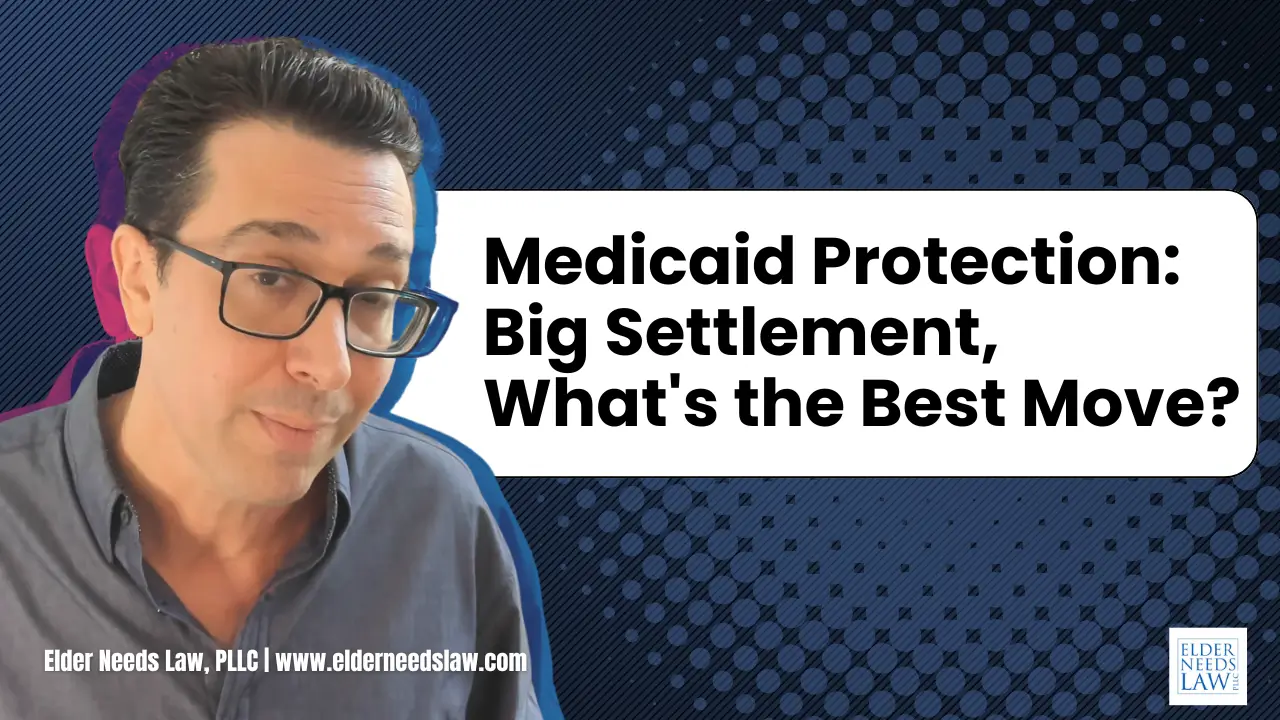Gifting Penalty Medicaid Ineligibility Exceptions

If you are researching Medicaid to assist paying for long-term care (through the Medicaid ICP program or home and community based managed care waiver program), you have undoubtedly learned that Medicaid applicants, even if they pass the asset and income test,will be ineligible for Medicaid, for a period of time, if they have gifted assets within the previous 60 months (5 years). Medicaid will “look back” five year sand add up all the transfers to non-spouses (for no value or less than fair market value) and use that aggregate number to calculate a Medicaid penalty period of ineligibility.
But, as is often the case in the law, there are certain exceptions to this general rule concerning the Medicaid ineligibility period.Federal law sets forth certain situations when it is perfectly allowable to transfer assets / make gifts to third parties penalty free.
When Can Medicaid Applicants Transfer or Gift Assets Without Penalty?
The Social Security POMS Manual Sections SI 01150.121 – SI 01150.126 explains the limited circumstances when gifts are allowable without penalty:
Gifting Exception (1): Transferring Assets into Certain Trusts
POMS Manual Section 01150.121 explains that transferring resources for less than fair market value does not apply to trusts if that trust is established for:
The sole benefit of the Medicaid applicant’s blind or disabled child (the child can be any age). Sole benefit means that the trust document legally binds these assets to be used only for the “sole benefit of”the person indicated. The child’s blindness or disability must be verified.
The sole benefit of the Medicaid applicant him or herself,through a special needs trust, which meets the requirements of 42 USC 1396(p)(d)(4)(A) – for those who are disabled and under the age of 65 or 42 USC 1396(p)(d)(4)(C) – for those Medicaid applicants who are disabled and any age.
Medicaid Asset Transfer Exception (2): Gifting a Home
POMS Manual Section 01150.122 describes when the Medicaid applicant’s home can be transferred to certain limited individuals as gifts within the look-back period without penalty:
Spouse / Young Child / Disabled Child Home Gifting Exception: Title to the Medicaid-applicant’s home maybe deeded to their spouse, any child under the age of 21, or to any child of any age who is blind or disabled.
Sibling Home Transfer Exception:The home may be given to the Medicaid-applicant’s sibling if the sibling was residing in the Medicaid applicant’s home for at least one year prior to the Medicaid-applicant’s institutionalization (e.g. living in a skilled nursing facility or eligible for home and community based services under a waiver program).
Caregiving Child Exception to Home Transfer: The Medicaid applicant’s home may be gifted to their son or daughter if such child was living in the home for two (2) years immediately prior to the Medicaid applicant becoming institutionalized AND the child, who is receiving title to the home,provided caregiving services that were necessary for the Medicaid applicant to avoid living in the nursing home for those two years. For example, perhaps the caregiving child regularly: prepared meals, transported their parent to doctor appointments, made sure they took prescription medications, shopped/ran errands,maintained the home, helped with finances, etc…
Medicaid Gifting Exception (3): Gifting Resources other than the Home
POMS Manual Section 01150.123 explains that any asset may be transferred to the Medicaid applicant’s spouse or blind/disabled child of any age without a Medicaid ineligibility penalty.
Medicaid Gifting Exception (4): Transferring Assets for Purposes Other than Obtaining SSI/Medicaid
POMS Manual SI 01150.125 explains that if individuals can prove that they gave away resources for purposes other than qualifying for Medicaid benefits, then they may be able to avoid a Medicaid transfer penalty period of ineligibility.
Note that if exceptions 1-3 discussed above do not apply,the reviewing agent will presume that any gift is subject to a penalty period.You, the Medicaid applicant, have the burden of providing convincing that this “for other purposes” exception applies.
Examples are: (i) the transfer was made per a court order; (ii)proving that (at the time) the gift was made that the transfer or could not have anticipated that they might have needed Medicaid; and (iii) after transfer there was an unexpected loss of income/resources which would have precluded SSI eligibility.
Sometimes patterns can be used as well. For example if a Medicaid applicant shows that, for the past 15 years, they donated $1,000 per year to the same charity or religious institution. Also if, when the transfer was made,the applicant was already under the $2,000 asset limit, that will help as well.
Medicaid Gifting Exception (5): Undue Hardship
This is perhaps the most difficult exception to prove. My office has never attempted to make this argument before. Undue hardship means that the individual would be deprived of food and shelter if they were denied SSI payments.
How to Cure Gifts or Transfers Made for Less than Fair Market Value
If a medicaid applicant has transferred assets or resources for less than fair market value within the five-year look back period, POMSSI 01150.124 discusses the one sure fire way to avoid a Medicaid gifting penalty period of ineligibility: have the entire gifted resource returned. A partial return is also useful in that it will result in a reduced penalty period. For example if an asset valued at $10,000 is gifted by a Medicaid applicant, and $7,000 is returned, then the penalty period of ineligibility would only be calculated based on a $3,000 transfer (as opposed to the full $10,000 transfer).
These transfer of asset / gifting rules are also set for thin the Florida ESS Policy Manual, Chapter 1600, concerning Assets.
Gifting, in general, is problematic and these exceptions should not be relied upon without first obtaining guidance from an experienced elder law attorney. Please call to schedule a consultation and discuss strategies for how to qualify for Medicaid.







